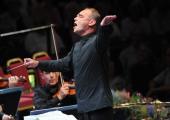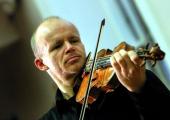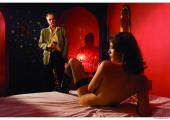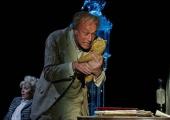Christian Gerhaher, Gerold Huber, Wigmore Hall

A "Die schöne Müllerin" full of vocal beauty and bleakness but not quite enough drama
The queues weren't quite Proms-sized but they were long enough for the little old Wigmore Hall to seem more than a little overwhelmed. Expectations were immense. The past year has seen baritone Christian Gerhaher cast a singular spell over London audience, through his introduction of a touch of intense Lieder-style intimacy to the orchestral and operatic stages. No wonder then that there was such a palpable buzz as we awaited his appearance in his natural Lieder habitat for a performance of Die schöne Müllerin at the Wigmore Hall.









